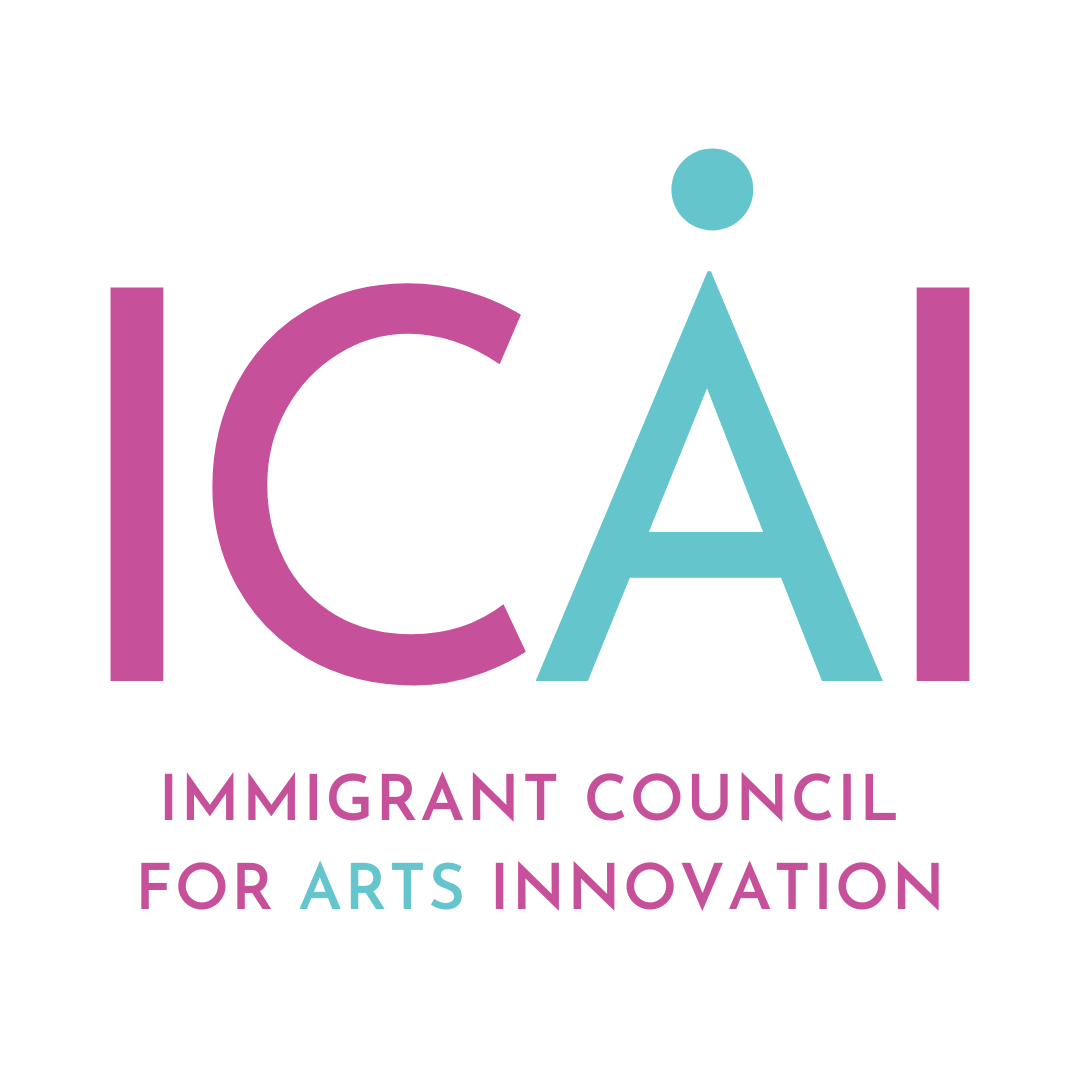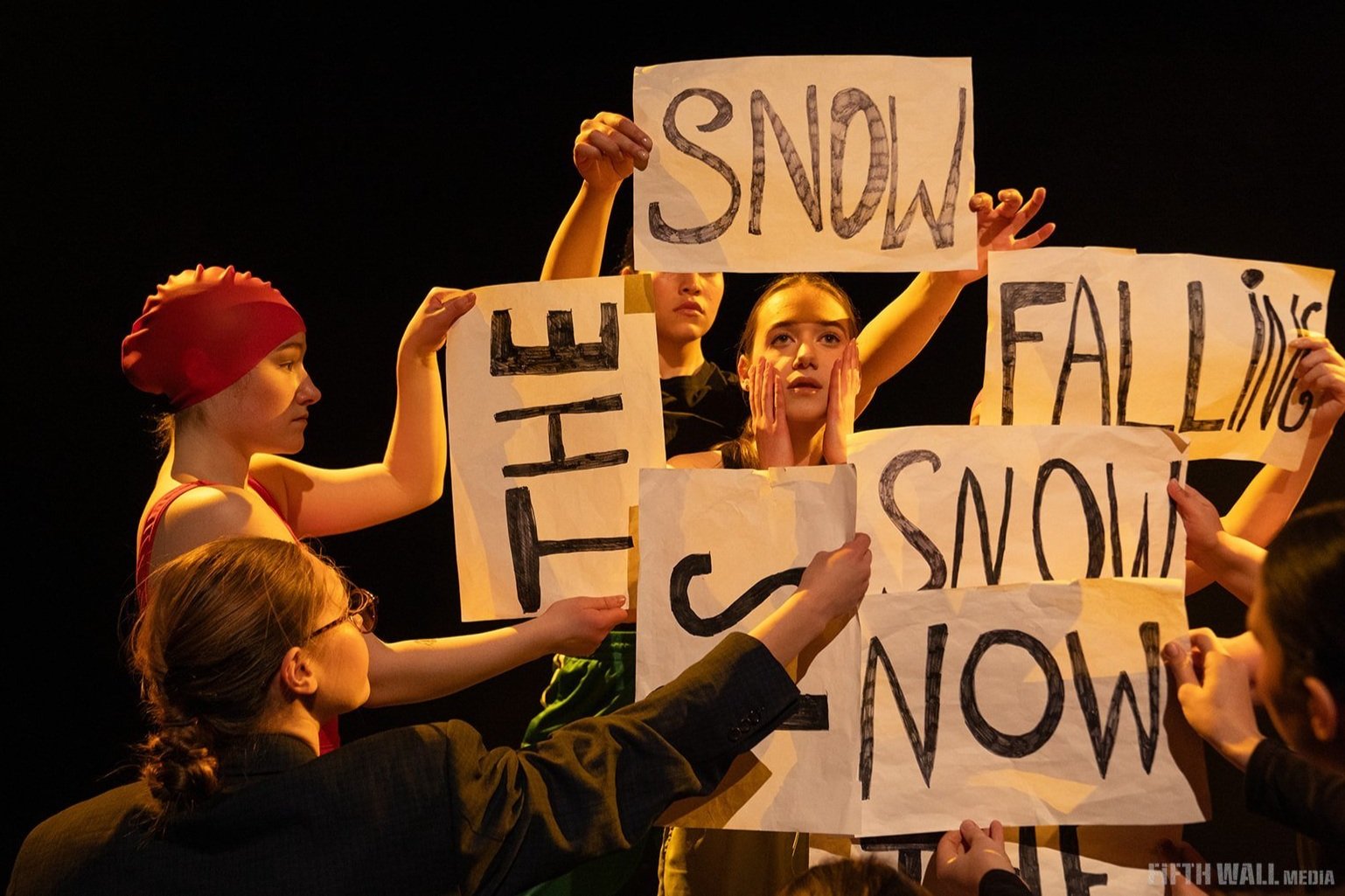Artist of the Month: June 2025
Director and Choreographer
Based in Calgary, Alberta
Tell us about yourself and your background in Dance and Theatre.
My name is Rita Rebetskaya and my background is in dance. For 15 years I danced in a Moscow-based International Folk Company, Igor Moiseyev Ballet, touring and performing on different stages. In parallel I graduated from the Russian Academy of Theatre and Art where I studied Theatre Criticism and History of Theatre. To me it was never enough so I launched a social enterprise: a theatre company with people with Down Syndrome called “InterAction”. The aim was to solve their social issues in Russia since there’s a huge problem with the perception of Down syndrome in society.
In 2021 I moved to Calgary, trying to understand who I am, which part of my career I want to continue and which part I wanted to leave behind. I started to dance and did the Professional Dance Program with Decidedly Jazz Dance, took more Contemporary Dance classes, performed with a couple of independent companies here (Dancing Project Laboratory and Error 404) and realized that I was missing mostly was creating something myself, creating a world for yourself it’s the most satisfying feeling and it’s a great way to keep your career going even after your stage years come to an end.
My NAPP mentor connected me with people from the University of Calgary since I love story telling and wanted to keep working in theatre, so now I’m finishing my Masters Degree, during these past 2 years I directed and choreographed a lot of projects so thanks to the University of Calgary. I had the opportunity to practice constantly and do what I always wanted to do.
You’re currently enrolled in a Masters Degree at the UofC, what is your research about?
My research is on integration of spoken or recorded text into the work of the choreographer. So I was very curious and excited about the work of current top world choreographers like Crystal Pike and Alexander Ekman who explore the integration of sound and text. I felt there was something that aligns with my interdisciplinary approach to art in general and I wanted to implement that into my work.
Here in Canada, I like that we have practice-based research. It's hard to find something like in Russia, where you’re not only exploiting something theoretically but also you go into the studio and practice.
What do you think are the differences between dance/theatre productions in North America versus Russia?
Disclaimer, this is my subjective opinion! I think it’s very different in dancing and theatre. I find that dance practice is very advanced and progressive because modern dance was born in North America. In Russia we were stuck for a while because during the Soviet Union all experimental studios were banished and shut down for many years. It was only in the 80’s when the first contemporary breakthrough. So we had a huge gap and that is why I feel schools in Russia where they teach to be choreographers are very conservative. Here, every dancer can identify as a choreographer, which is just part of the practice.
While in Russia people can barely distinguish themselves as choreographers, there’s a fear of calling yourself a choreographer, of “not being good enough”. I think choreographing it’s natural, it should be part of your skills, instruments and tools, otherwise it’s like a disability to think “I can only perform but I can not think creatively”.
In theatre, North America has a very different tradition, it’s closer to Great Britain, very text/story based. Although, there’s an argument to say that in a huge part of Canada (Quebec) theatre is very image-based. In general, however, the tradition is very much text-based and there are differences in the funding system. In Russia, the government funds theatres, so Russian theatre has huge funding from the government –there’s, of course, downsides of this in terms of freedom and whatnot.
Here, theatre companies are in a much harder situation, they need to survive. Grants can only do so much and stay afloat so it's quite conservative in this way, theatre companies are afraid of trying new stuff because they don’t know if they will get the audience or not. We also have a huge theatre culture in Russia, there’s audiences for different types of theatre and people are used to going to theatre - we have over 100 theatres in Moscow. Because of that, there’s more competition and quality, we have a wider range, from conservative theatre-goers to people more open to experimentation.
However, I feel more opportunities for me here, I like that there’s less judging and people are very open to newcomer artists. I’m not afraid to offer something, it’s so multicultural that you don’t feel like an immigrant all the time.
Another difference! Here, the playwrights and actors are the main person here versus in Russia it’s Directors. In Russia it’s all about the authorship, and Directors can interpret a play differently each time. For example, we have this system in Russia where theatre companies would launch a laboratory for 1 or 2 weeks, then directors can apply to this laboratory and they propose a project, work with the material for these two weeks and then the theatre company would choose who they want to stage and what material to take on.
You’re co-funding a new theatre company called Murmur. What inspired your company and how do you find the experience of funding something new in a different country?
This started with my friend Polina Kaulio, she’s a MFA Designer at the UofC and she’s also Russian. She worked in a theatre festival, Golden Mask, for many years as a producer and once she moved here she restarted her career in design, similar to my pathway. When we met I felt like having a partner in crime. We discussed some ideas and decided to found a theatre company together, Polina said “Let’s not postpone it, let’s just try it”. So we started with all local actors, a lot of Russian speaking collaborators (videographer, photographer/ prop masters/ musician), all these people are eager to create together, Murmur started from the people and from the hunger of starting something. I also didn’t want to wait for opportunities but wanted to create something for myself.
My experience funding something in Moscow had a lot to do with social changes and there’s definitely something in common, but I think it’s not about different countries but a different me. I am more mature now, experienced and more knowledgeable. My goal is to burn out in a couple of months but keep something going.
You’re also a community builder with “Artist Circle”. What do you find to be the most valuable and the most challenging about this space?
This came from my inquiry to advance as an artist. The environment here is very welcoming and I like to learn from different disciplines and implement it in your own practice. The Artists Circle is a peer-to-peer mastermind session: around 6 artists gather around in a circle, each of them have 20 minutes and they can speak to their inquiries, issues, challenges, etc. and other artists can respond and give feedback.
We’ve had 4 circles and the most challenging is to find more artists. I'd like to expand the circle because I didn’t do much to go beyond my contacts to start. Now I’m trying to advertise the Artists Circle in other places. The most valuable thing is to meet like-minded people and people who are patient with their practice and have big dreams.










